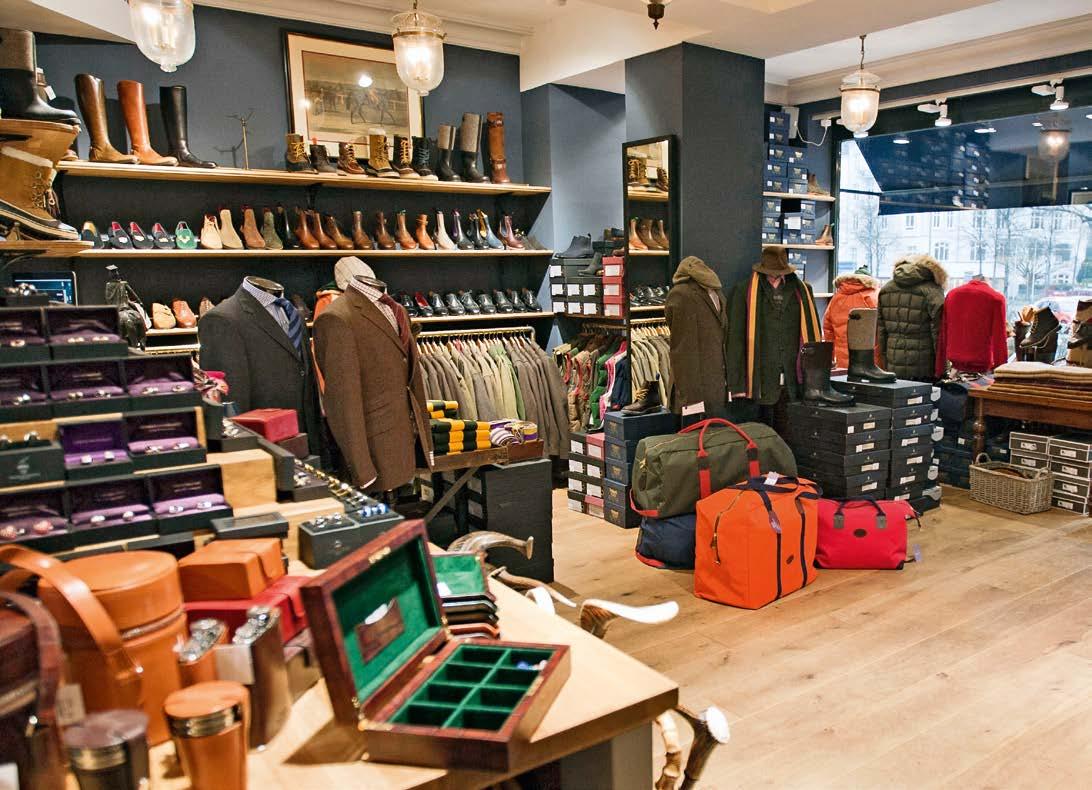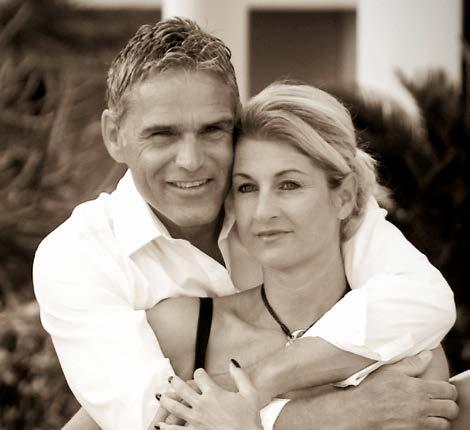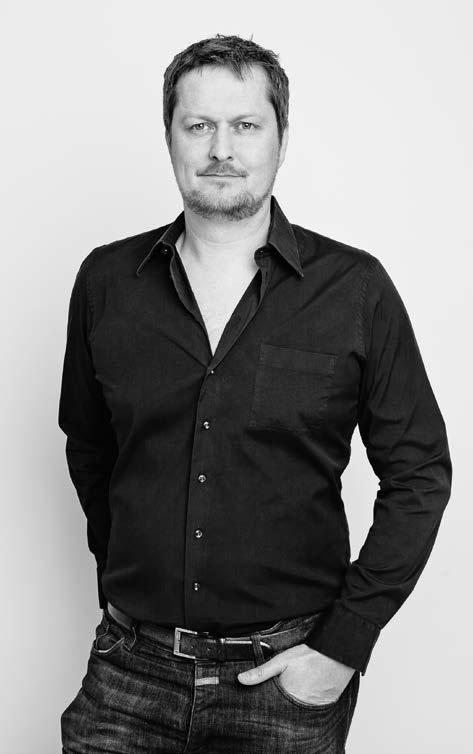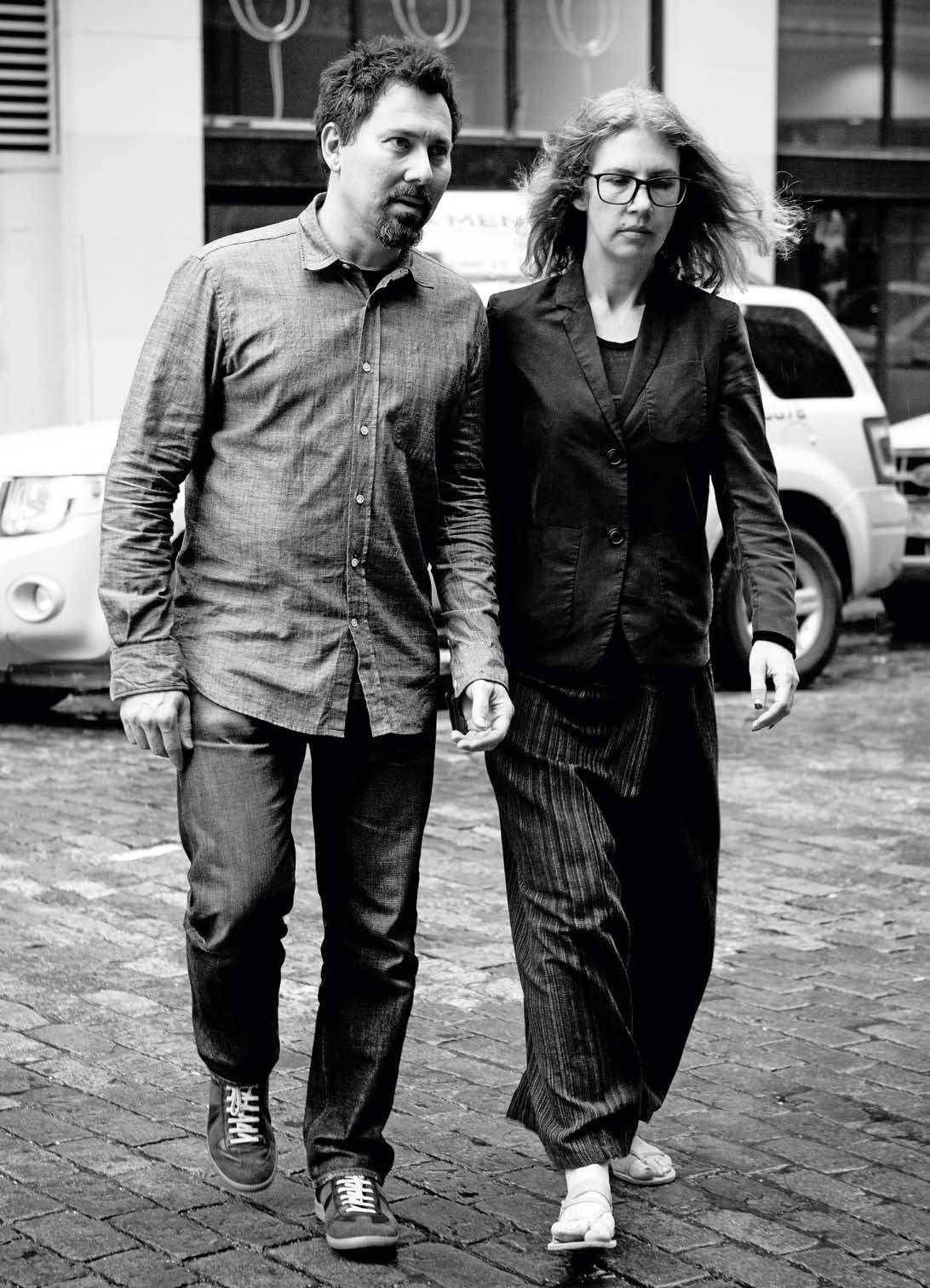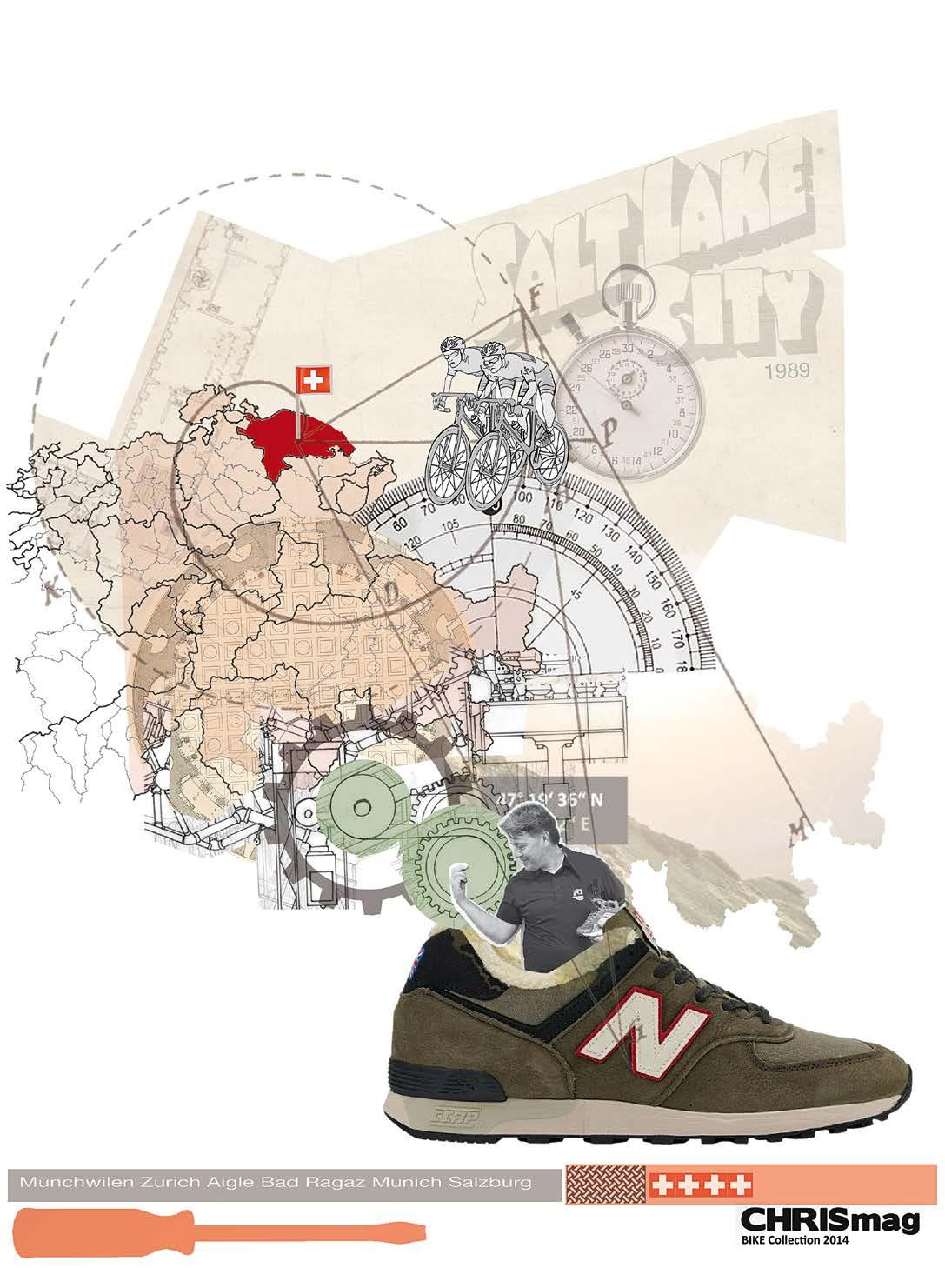
15 minute read
Being an Entrepreneur Means that You Need
Salewa, Oberrauch Zitt, Lodenwelt, a farm, a cheese dairy… Heiner Oberrauch is the definition of an entrepreneur. He is someone who tackles problems head on and sets examples. He also has an excellent nose for changes and shifts. Maybe the mountains sharpened his senses. That’s where he has been drawn to whenever he needs to clear his head since he was a child. While speaking to style in progress, he explains why he prefers to speak of responsibility rather than sustainability, why the specialised retail trade needs to be more self-confident, and why success always requires a clear positioning.
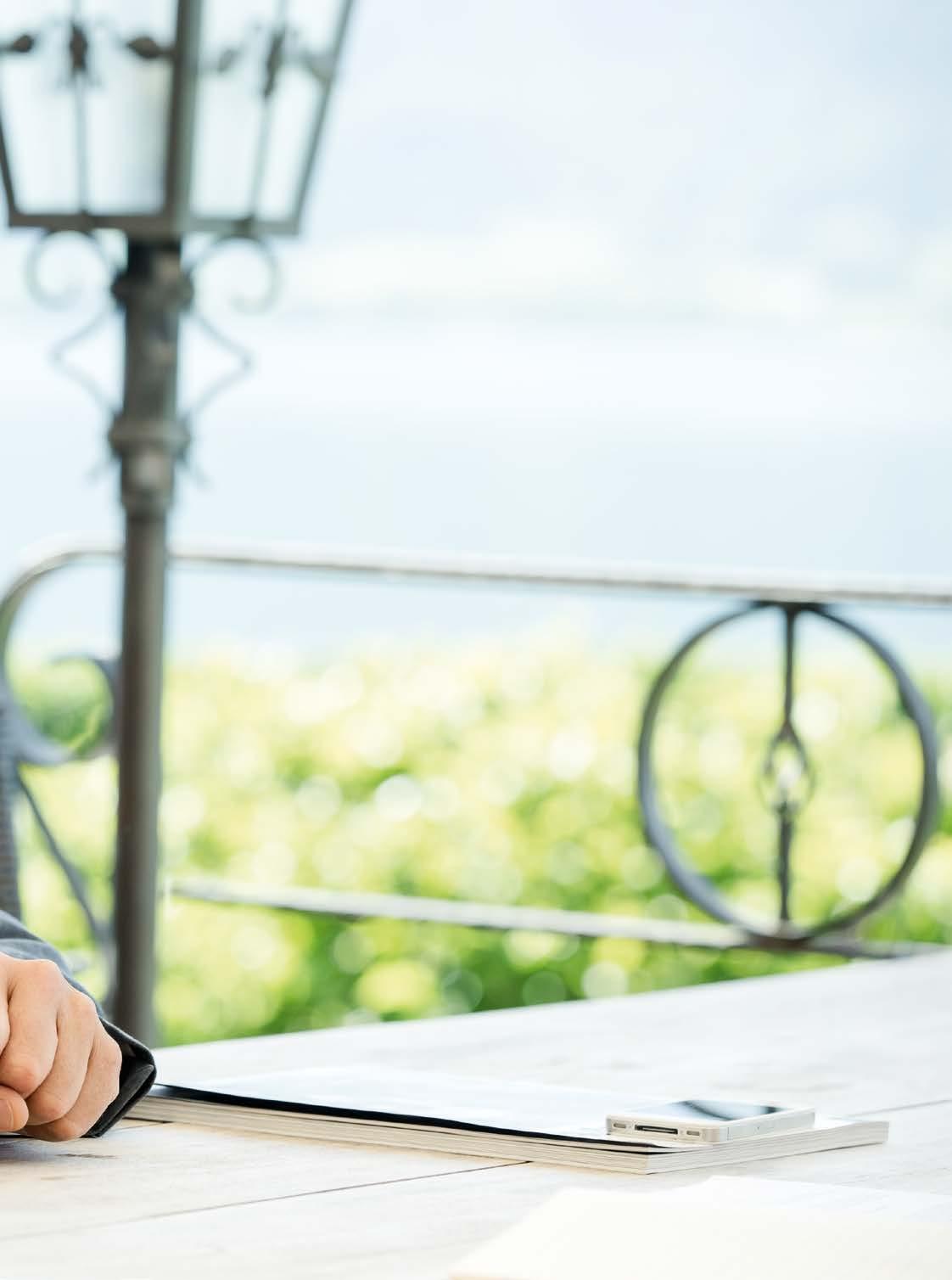
Interview: Stephan Huber. Text: Isabel Faiss. Photos: Chris Rogl, Oberalp Group, Oskar da Ritz
Mr Oberrauch, does your day really only have 24 hours? How can you fit in everything you do?
It works out fine. There are two sides to my nature. One side is entrepreneurial, the other artistic. That’s why I’m always curious. But I can let go and I walk away once something has been achieved. To be fair, it can happen that others are asked to clean up after me. That also has an advantage as every tree casts a shadow. It wouldn’t be good if I was always there to intervene. I am not a workaholic; I go on holiday for six weeks every year and I’m in the mountains twice a week. That enables me to take a step back and see things from a different angle. If you stand close to a huge mountain, it looks infinitely large. But if you move back, it looks considerably smaller. Or maybe one can even spot a cable car on the other side. It is one of my life principles to always see things in a positive light. I say this because there is the risk of wasting time on the negatives, which costs a tremendous amount of energy. My brother and I were merely 21 and 19 years old when our father enabled us to open our own sports shop. He sent us his two best salespeople and then allowed us to do our own thing. The experience of how positive trust can be influenced my entrepreneurial career significantly.
Your entrepreneurial biography is so extensive that one fails to come up with clear classifi cation… I guess that suits you just fine. What describes you better? Are you a part-time farmer or a chef in training?
(laughs) I am a generalist. I cannot do anything particularly well or particularly badly. I’m good at judging personalities; my antennas that enable me to identify the current zeitgeist work just fine. Especially in the fashion industry one always questions whether a trend prevails or not. I do seem to have a nose for what pulls through and what doesn’t. It’s a bit of a game for me - both regarding the main business of the brands Salewa and Dynafit, as well as that of the fashion retail industry with Oberrauch Zitt. You always need to try something new while cooking. It’s crucial to remain grounded. I need to be outside a lot. I need to be in the garden for at least a quarter of an hour per day to remain grounded. When I’m in the garden and see the vegetables grow, then that can sometimes give me more satisfaction than a great balance sheet.
During the last Ispo in Munich, I noticed - not least at the
Salewa stand - that the transformation of many sports and outdoor brands into lifestyle brands is well advanced. How do you explain the fact that the penetration of all areas of life is so attractive from an eco nomical point of view? Salewa also does good business with people who would like to share the lifestyle despite the fact they’d never consider a moun tain tour in real life.
You’re quite right. Although we produce technical products, we sell the longing for freedom and friendship in the mountains. Where does this longing come from? Today, we are online for 24 hours and it is necessary to be offline for a while. The return to nature is a basic desire in our hectic world. That’s why the entire outdoor industry has become so interesting again. The second aspect is that technical materials are comfortable and have many advantages. The customers can sense this and seek them out. However, that alone would not be enough. As a brand, you need to communicate and reflect the lifestyle. In these uncertain times provoked by the world economy, human beings want to retreat into the romanticism of nature. That’s another vital factor. The new luxury is not gold and glamour, but space. Nature offers that space, as well as the time and leisure to do something in a relaxed manner and to actually enjoy it too. One can enjoy health and physical balance instead of the turbo treatment offered by fitness studios.
Did you anticipate this development when you took over Salewa in 1990?
That’s an interesting question. My passion for mountaineering was naturally the main reason behind my decision to buy Salewa. Mountains are my teachers; there is a very deep connection. Additionally, the brand had a complicated ownership structure and didn’t have a modern management in some departments. I just thought it wouldn’t be too difficult to do a better job. The third aspect was the question of where the market is actually heading. That’s when my brain kicked in and I saw the potential that mountaineering and nature experiences in general could become more important in the future.
Today, this lifestyle world attracts a lot of business in ur ban areas. If you stroll through cities such as New York and Berlin, you see many people wearing outdoor brands or a look that resembles these brands in everyday life. Does that affect the strategic align ment of Salewa? Does it, for instance, have an effect on the new logo?
It doesn’t really have an influence, no. Even when the market was growing we made it clear that we are a mountaineering brand, not merely an outdoor brand. The first step is to reach your core target group and work for them. That’s what we prefer to do anyway because we are close to that group. Of course we know that we cannot live off the extreme mountaineers alone; they only contribute approximately 10 percent to our annual turnover. However, our experience tells us that success is more permanent if you are more passionate and pointed when serving your key target group.
So the aim is to position the brand at the top of the perfor mance segment?
Yes, it is. We will invest heavily in technical outerwear over the next few years. On the one hand we do that out of passion for regularly introducing new products, on the other hand out of the rational consideration that technical products give a brand like Salewa a better image positioning. At the same time, functionality limits our leeway in regards to being fashionable. We always have to be careful not to become comparable. In addition, the functionality has to be competently communicated by the retailers. That is a huge challenge for the sales staff, especially in our business segment. Many sportswear customers are almost prophets who try out and compare things. Every detail is important in that respect.
Does the issue of sustainability also play a role for these customers?
Yes, it plays a very central role. But let’s call it corporate responsibility.
How do you define that for yourself?
It’s an integral part of our family philosophy. We do not only invest parts of our profits in the community and good causes, but also 10 percent of our own personal time. Our family has had this approach for many generations. Whenever I do something, I ask myself what makes sense. It makes sense and gives pleasure to see children play in our inhouse kindergarten and to have a positive ecological footprint due to the fact that our roof produces more electricity than we need. It makes sense to have our office surrounded by a park,
where employees - not only our own - can rest in the shade of the trees during their midday break. It makes sense to supply employees with a fitness studio. With one of the most attractive indoor climbing venues in Italy we want to give something back to the mountaineers who keep our business alive. Our employees naturally don’t have to pay an entrance fee.
So taking corporate responsibility is ultimately something you do for yourself?
That’s right. But it is only credible and can only create positive feedback if you do it with genuine passion. Our Lodenwelt is the best example for that. When my father handed me the Oberrauch shops 15 years ago, I had to ask myself what I - as the fifth generation - can do with this loden business to express a genuine passion for the material and continue with the tradition. The result was the Lodenwelt concept which we introduced in 2000. Of course the project was also driven by the entrepreneurial ego to do a particularly excellent job. However, it was implemented without a business plan and out of a genuine passion for loden. Today, it is our best business.
So why is sustainability so slow to affect direct consumer behaviour? Are the consumers ignorant?
We even opened a fashion store that focused exclusively on sustainable fashion, but closed it again in the end. The market probably wasn’t ready for this yet. There is no clear orientation for the consumers. There is a lot of nonsense out there and there are too many different approaches to this topic. Some place an emphasis on the human element and fair production conditions, while others focus on the environmental angle. I sense quite a bit of intellectual disorder. When it comes to sustainability, I’ve always resisted focusing on merely one of these subareas; for me responsibility is something that pervades all areas. That’s why we compile a sustainability report. Every manager does not only have to produce results, but also show what he is doing concerning sustainability. We are a management-run family business in which the family takes care of the corporate culture and brand.
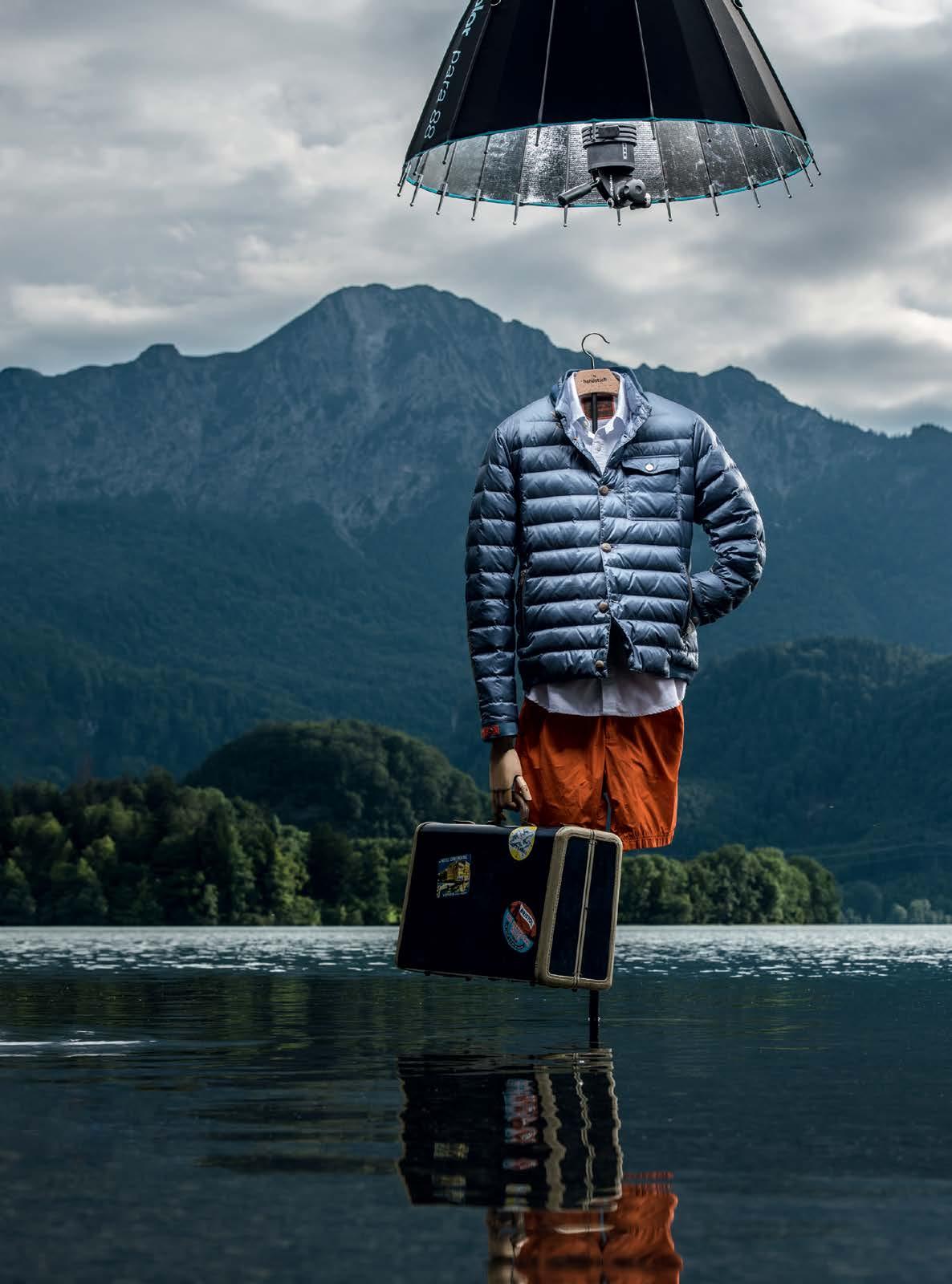
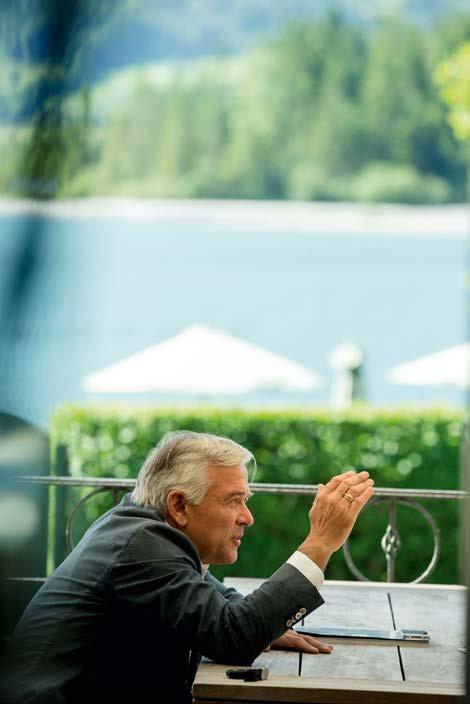
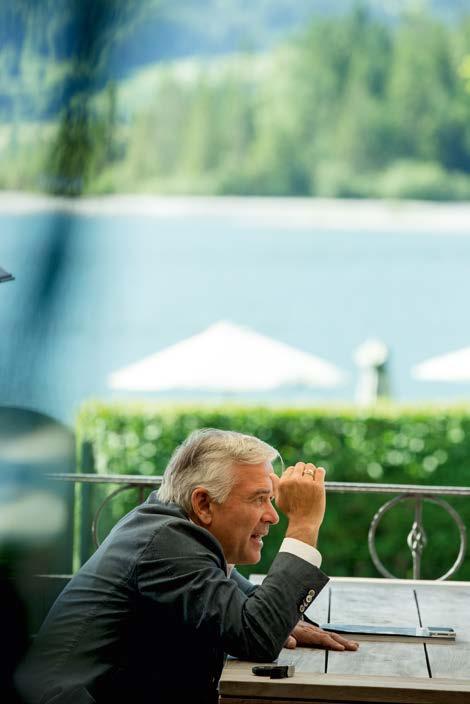
However, the family has no problems with leaving strategic decisions to the management. Sustainability, on the other hand, has to be a family issue because it is a matter of corporate culture. When a product is used for five years instead of one, then that reduces the use of resources. That has an 80% impact on a sustainability record. An environmentally friendly and energy saving production process is the remaining 20% of a positive sustainability effect.
Your roots lie in the specialised retail trade. What’s your re sponse to those who said that the classic owner-managed specialised retailers are a thing of the past?
The opposite is the case. A business deal always involves humans. The best example for this is the catering industry. That industry stopped remunerating its personnel a couple of years ago, thus employing cheap labour and neglecting service. That happened for a while and had bad effects, but then the tide turned. Today, a waiter in a South Tyrolean restaurant is a real personality with a very good wage. He is valued again now. After all, he advises the guests and acts as an entertainer on the highest level. That works. Translated into the specialised trade industry that means that the market participants need to select a niche and serve it in-depth in order to remain irreplaceable. That is the way to do it. Being an entrepreneur means that you need to create added value, as well as attaching value to individuals and assets. I believe in personal advice and proximity to customers; I think that will always prevail.
The overall environment for specialised retailers has changed massively due to fac tors such as vertical integration and online trading. How does this affect your stores?
Our Salewa brand runs 15 own stores and operates 120 branches as franchise companies around the globe, which means I live in both worlds. It has become easier in the fashion sector after some competitors disappeared. That is due to the same development as described before regarding the catering industry; the stores tried to save money on the back of the staff and soon felt the effects. Shopping is not only about clothing yourself. It is just as important to feel understood and to be taken seriously; it’s a massage for the soul, so to speak. The specialised retail trade, which knows its customers better than any other market competitor, can provide this experience, which serves one of the basic human needs. But for that we need real personalities in the
WWW.BARB-ONE.COM
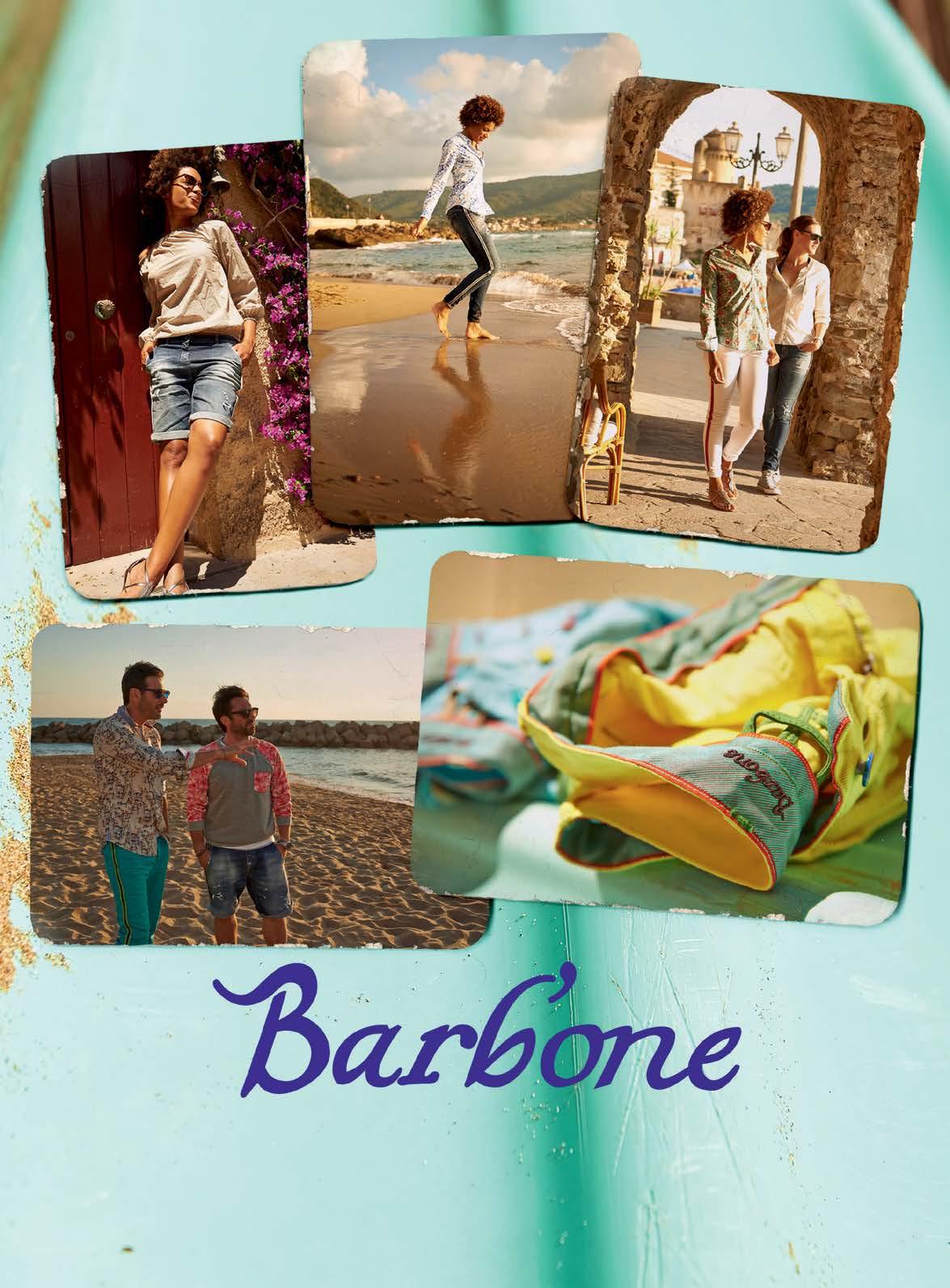
stores, because that can only be achieved via human resources. For this reason we need to pay our people well and give them an appropriate social value. The customers are willing to pay the price that this service costs. I am absolutely convinced that there is no need to start a price war. I would always prefer to go to a restaurant with great service and feel comfortable, even if I do need to pay five percent more. Why should this approach not work in the specialised retail industry as well? Five percent would be a huge margin for a retailer.
Do specialised retailers necessarily need an online store in the future?
One thing is clear: sales floors are no longer as valuable as they used to be. If it’s a specifically designed area or theme world where I can feel the passion that has been put into it, then that’s a different story altogether. But there are definitely too many non-specifically designed sales floors. A product is available 24 hours a day online, which wasn’t the case in the past. That’s why I think one does need an online presence. We are still in the infancy stage in this respect and we are still making mistakes, but we still need the online business because multi-channel is the future. But there is no reason for stationary retailers to be discouraged. I rather believe there will be no separation at all in the future. Online may be a technical form of selling goods - a technical tool like a credit card. But the retailer’s values remain the same, which means that online and offline work the same way in principle. I often mention this particular example to my staff: my great-great grandfather ran an excellent business. He was a stagecoach driver and noticed that a lot of beautiful fabrics entered the country via Vienna, which is why he started a wholesale company. He
Oberrauch Zitt in Bolzano - Heiner Oberrauch believes in the strengths of the specialised retail industry.
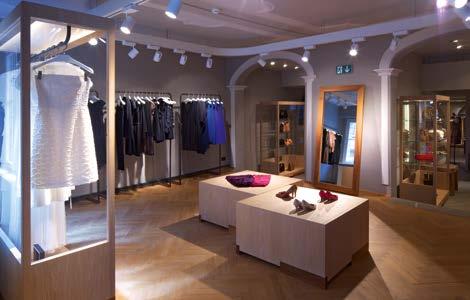
travelled to Vienna on a regular basis for a week, purchased some fabrics, and then imported them into Italy. The business nearly bankrupted under his son’s management. Now why was that the case? It was due to the rise of the railroads. It was a technology change that he didn’t participate in. The retailers simply travelled to Vienna by train and purchased the fabrics themselves. Technology changes require a rethink - that’s an age-old business principle.
Does this mean we need new business models now?
Yes, of course it does. There must be new business models, because a juxtaposition of online and
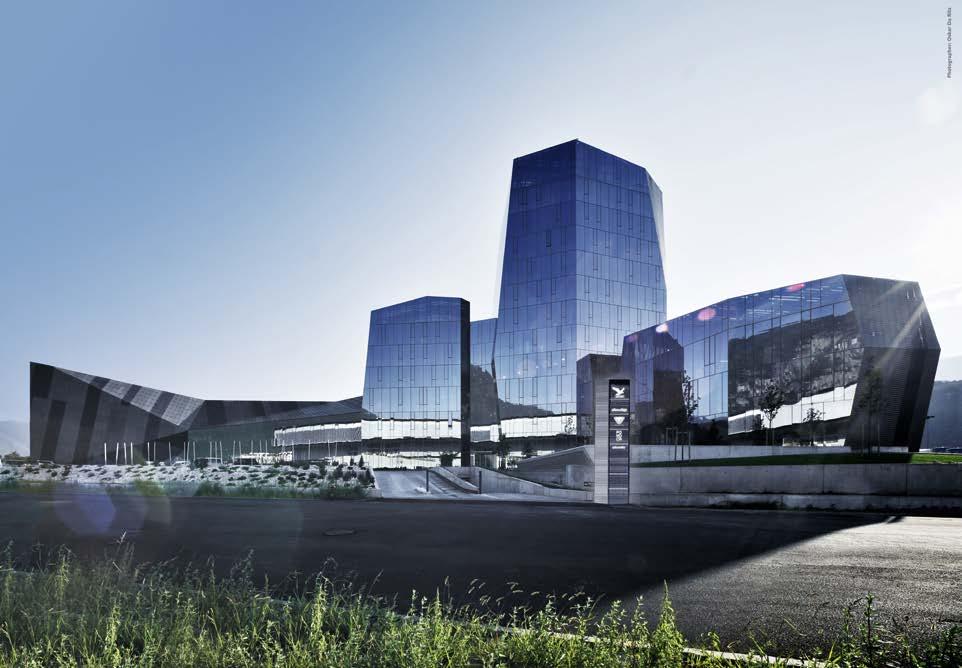
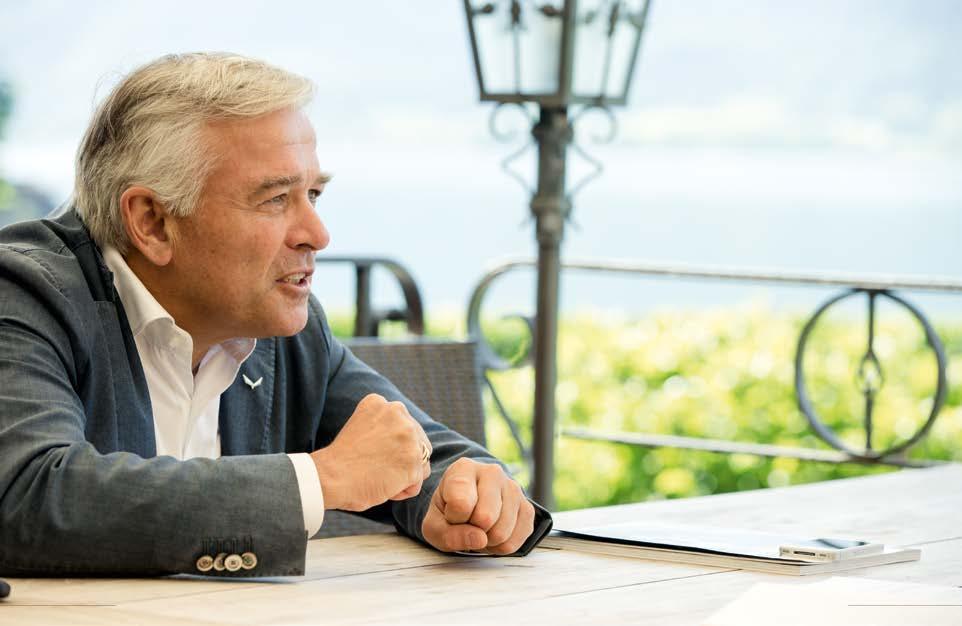
offline will not work when every decision is based on price. That’s why retailers need to highlight the customers’ understanding that they pay a little more for service in the store and that the price of a product is not the decisive factor. The industry itself has to show a little dignity to itself in that respect and charge a little more for its service. A broad clientele has no problems with a slightly higher price as long as the shopping process is an experience. This idea needs to be engrained in the brains of both customers and retailers, but that is not the case yet. It’s a bigger issue for us retailers, mainly because one needs to be brave enough to charge what the service is worth, and then stand by that decision.
Do you shop online?
I don’t buy a lot online. I prefer to be in the garden than in front of a computer. The PC has never suited me. I am more into the Internet after the introduction of the iPad.
You want to become a chef too…
Yes, that’s true. It’s my vision to have a plan for retirement in place now. You can’t really start anything from scratch at that age. I have made many bets saying that I will withdraw from the operational side of the business when I am 60 years of age. That means I have another four years to go. That is the plan. After that, I would like to manage a farm where I do everything myself - the cultivation of old grain types, growing vegetables, harvesting all kinds of fruit, looking after all kinds of animals. I then want to cook with my own produce twice a week. There will only be what is available at that particular time of the year. That is my great vision for the future. You asked earlier what drives me inside. After thinking about it for a while, I must confess that I can be a very driven man at times. I am driven to try and create new things. On the other hand, I also have a leisurely side to my nature, which enables me to tackle topics in-depth and gain a certain level of wisdom. You also asked why I do so many things. It’s the joy of creating things. I haven’t really found the exact answer to that particular question yet. Maybe that is the great challenge of my third stage of life; maybe I need to concentrate on one thing and dig deep.
Thank you for the interview.
www.salewa.com www.oberrauch-zitt.com www.capriz.bz

